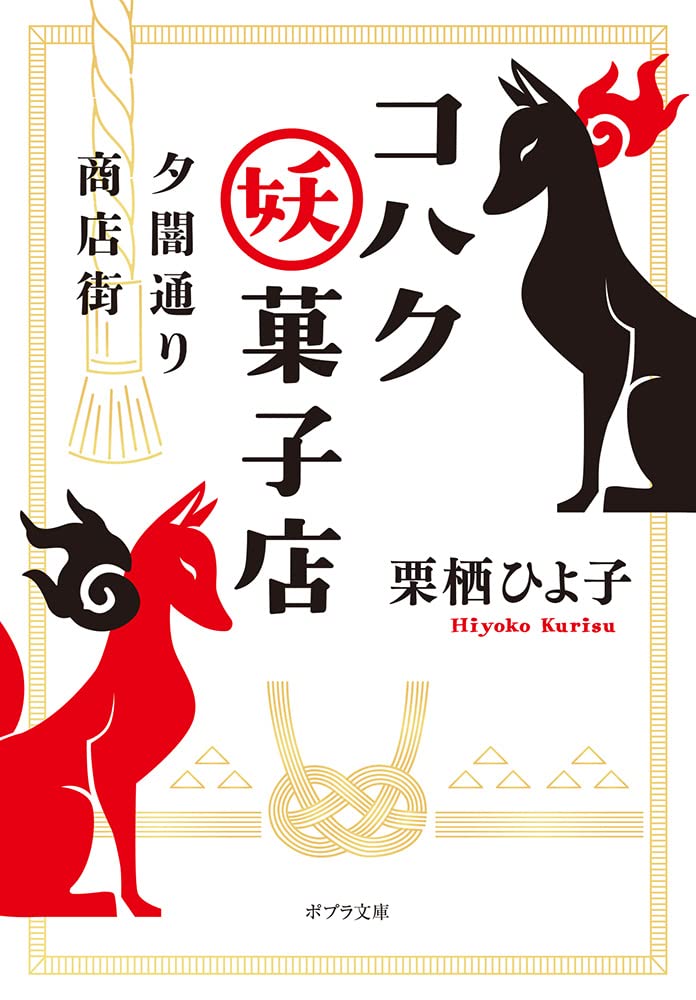The Kohaku Supernormal Sweets Shop
コハク妖菓子店 (Kohaku Yо̄gashiten)
2024-08-11T17:50:13Z

Summary
People wrestling with problems so great they threaten their own sense of existence might find themselves on a strange, dark street lined with old shops, though they usually only find one open: the Kohaku Supernormal Sweets Shop. There, an odd shop keeper provides them with something sweet, normally a traditional Japanese dessert, which brings with it a little magic that has a profound impact on their lives, helping them grow and solve their problems.
About the Author
Hiyoko Kurisu has authored several light novels including Rapunzel of the Magic Item Shop published in English by Cross Infinite World and translated by Kai Sadler. Kurisu (or Chris, as it's stylized in some places), primarily works on books targeting women including romcoms and lots of food. She has won two awards, one in 2019 for best isekai romantasy, and another in 2018 for one of her food-centered stories from an award given in collaboration between Shousetsuka ni Narou and Starts Publishing. While I didn't realize it at first, The Kohaku Supernormal Sweets Shop is part of a series.
Review
Might as well start with this: I love this book.
Now that we all know where we're coming from, I can start telling you about it. This book is sweet. Literally, being about sweets, and figuratively. I mean, the first one is still figurative because licking the book won't taste sweet, but you know what I mean. If you're looking for a gentle read to help return your hope in humanity, then this is the book for you. It's essentially a collection of short stories in which people who are suffering from huge issues in their life stumble upon a mystical sweet shop run by a mysterious young man named Kogetsu. These magic sweets cause some change in their lives that helps them grow and learn.
The magical aspect of the story is quite minor, in that most of the magical effects are quite small. One is literally “a small good thing will happen,” such as an unexpected phone call from the customer's boyfriend. The magic itself isn't the focus of the stories, it's how these little effects cause these people to face their issues and insecurities and move past them. This is all about emotions and relationships, I would say. In that sense it definitely feels likely women are more likely to pick this up, but I do think the stories could resonate with essentially anyone. Though, most of the primary characters in the stories are female and tending towards younger rather than older.
The book does have very slight light novel vibes, which is perhaps due to Kurisu's experience as a light novel author. It's hard to specifically describe what gives that impression, but some of it comes from the depictions of our shop owner, Kogetsu, who's basically a pretty boy. One reviewer I came across also described him as tsundere, and I don't disagree, so there is a little bit of leaning into anime-esque tropes. I don't think this tendency detracts from the other characters of the stories, and it even makes sense for Kogetsu. I wouldn't necessarily categorize this trait of the style as negative, but I think it does mean the book feels a bit less “serious” or “literary”.
I mentioned this is part of a series, but, from what I can tell, it's less a direct series with the same characters and more a sort of collection of other mystical “shops” on this shopping district street on the border of the real world and the spirit world. The description of the next book makes it sound like it's still about people with struggles, but this time they'll be visiting a post office rather than a sweets shop. I want to read it.
Potential Translation Problems
Title. Title, title, title. This one's a toughie. There are two puns/references that are very hard to get in the English translation. Near impossible, really. Whoever manages it should get an award.
The first is kohaku. Kohaku can mean “amber” or it can be a name with no reference to the gemstone. The title as it's written doesn't tell us which it is. The description of Kogetsu implies “amber” could be a valid interpretation (because of his coloration), but, trying not to give any spoilers, it's also a reference to Kogetsu's history which you don't find out until the end of the book, and what it references is definitely a name unrelated to amber.
The second is a full on pun. Yо̄gashi as it's normally written means “Western sweets”, but the way it's written in the name of the shop (and therefore title) means it sounds the same, but the yо̄ actually means “paranormal” or “supernatural” rather than “Western”. This is probably not that important since you could easily just gloss over this pun and pretend it's not there, but there is one point where one of the customers thinks it's odd that the store name says “Western sweets” (albeit in a punny way) but sells Japanese sweets. That's why I used “Supernormal” in my translation, because then that thought could be turned into, “Supernormal? These seem like totally normal sweets to me.” But it could also just be eliminated.
One other question about the title would be what specifically do you use for kashi. “Candy” is a valid translation, but part of me cringes at the idea of calling daifuku candy. Which is why I went with sweets. Maybe confection would be better? The Kohaku Supernormal Confectionary? Is that clunky?
Final Ratings
How many stars? 5.0
Would I want to translate it? Please let me translate this.
